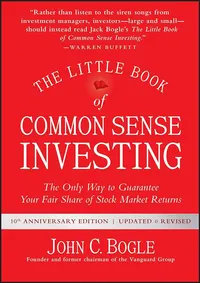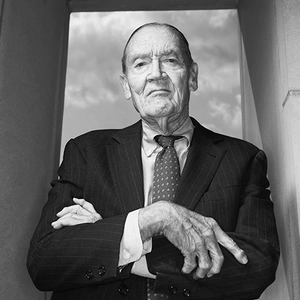The Little Book of Common Sense Investing
The Only Way to Guarantee Your Fair Share of Stock Market Returns

Author
The Little Book of Common Sense Investing
The Only Way to Guarantee Your Fair Share of Stock Market Returns
£18.99






Shipping and delivery
Standard delivery: 3-5 days after dispatch
United Kingdom: GBP 2.99
- Learn a straightforward, effective investment strategy that demystifies the complexities of the stock market.
- The book emphasizes the benefits of a buy-and-hold strategy, encouraging readers to focus on long-term growth.
- By advocating for low-cost index funds, you can significantly reduce investment fees, maximizing your returns.
- Bogle’s teachings promote patience and a disciplined investment approach, helping you avoid impulsive decisions.
The Little Book of Common Sense Investing serves as an essential guide for both novice and experienced investors seeking to navigate the complexities of the financial markets. Bogle’s insights are rooted in decades of experience and research, making this book a cornerstone in the field of personal finance.What Readers Will Learn:
- Understanding Index Investing: Readers will grasp the fundamentals of index investing and why it is often more beneficial than attempting to pick individual stocks or actively managed funds.
- Importance of Costs: The book emphasizes how investment costs directly affect returns, advocating for low-cost options to maximize growth potential.
- Long-Term Strategy: Bogle encourages readers to adopt a long-term investment horizon, highlighting the power of compounding returns over time.
- Behavioral Finance Awareness: Insights into common psychological pitfalls that investors face, helping them make more rational decisions.
In summary, The Little Book of Common Sense Investing is not just a guide; it’s an invitation to rethink conventional investment wisdom. With its emphasis on simplicity, cost-effectiveness, and long-term strategies, this book remains relevant for anyone aiming to secure their financial future through informed investment choices.
Year Published
Publisher
Pages
Weight
Language
ISBN 10
ISBN 13
The book: "The Little Book of Common Sense Investing" Is perfect for:
- Beginner Investors: Those new to investing will find clear explanations and practical advice on how to start their investment journey effectively.
- Experienced Investors: Seasoned investors can benefit from Bogle’s insights into minimizing costs and maximizing returns through index investing.
- Financial Advisors: Professionals looking for a foundational text on passive investing strategies will appreciate Bogle’s comprehensive approach.
Meet the author
John C. Bogle (1929-2019) was a pioneering American investor, business magnate, and philanthropist, best known as the founder of The Vanguard Group and the creator of the first retail index mutual fund. He graduated magna cum laude in Economics from Princeton University in 1951, where his senior thesis on mutual funds caught the attention of Walter L. Morgan, the founder of Wellington Management Company. Bogle’s career began at Wellington, where he rapidly ascended to leadership roles and ultimately became president in 1967. His innovative vision led to the establishment of Vanguard in 1974, which revolutionized the investment industry by prioritizing low-cost index funds and aligning the interests of investors with those of fund managers.
Bogle authored several influential books on investing, including The Little Book of Common Sense Investing, which advocates for a straightforward, long-term investment strategy centered on index funds. His work has earned him numerous accolades, including being named one of TIME magazine’s 100 most powerful people and receiving the Lifetime Achievement Award from Institutional Investor. Through his writings and advocacy, Bogle has been a relentless champion for investors, emphasizing the importance of reducing costs and focusing on long-term growth.
Beyond his professional achievements, Bogle was deeply committed to civic engagement and education, serving on various boards and receiving honorary doctorates from multiple universities. He resided in Bryn Mawr, Pennsylvania, where he continued to influence the investment community until his passing in 2019.


